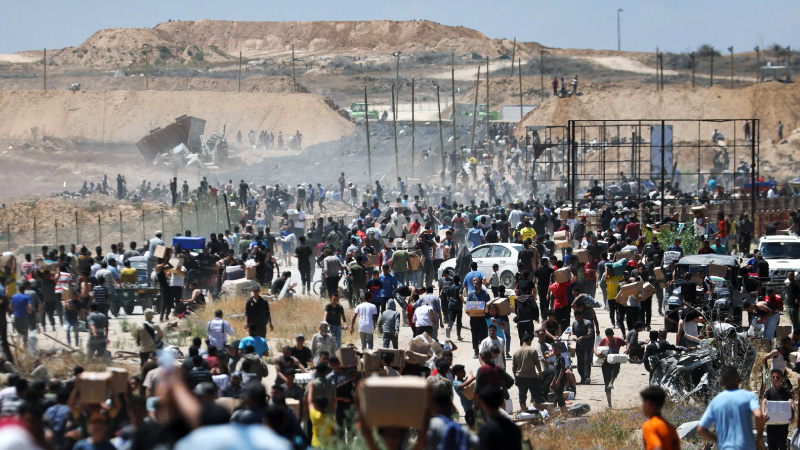- The U.S. proposed a 60-day ceasefire involving a phased hostage-prisoner exchange.
- Israel accepted the deal, but Hamas says it falls short of core demands.
- Humanitarian aid would enter Gaza if Hamas signs the agreement.
The United States has presented a new ceasefire proposal aimed at halting hostilities in Gaza for 60 days. The plan includes a phased release of hostages by Hamas and Palestinian prisoners by Israel, along with the return of remains and the immediate flow of humanitarian aid.
Hamas has criticized the plan for not addressing its central demands, particularly a permanent ceasefire and the lifting of the blockade on Gaza.
Ceasefire Hangs in Balance: Hamas Hesitates as Israel Backs US Peace Plan
The U.S. ceasefire initiative, seen by Reuters, proposes an initial exchange of 28 Israeli hostages (alive and dead) for 125 Palestinian prisoners and 180 bodies, with further releases tied to a long-term truce. It aims to end over 19 months of violence and is supported by Egypt and Qatar as key mediators.
Israeli Prime Minister Benjamin Netanyahu reportedly told hostage families that his government accepted the deal. However, no official confirmation has been made by the Israeli government. The deal marks a significant shift after the collapse of a previous ceasefire and a renewed offensive by Israel in March.
Hamas leaders have responded cautiously, stating the proposal does not meet their core demands such as ending the war and lifting the blockade. A senior Hamas official signaled that rejection is likely, as they accuse the Israeli response of attempting to prolong occupation and famine conditions.
Meanwhile, the humanitarian situation in Gaza has worsened drastically. UN agencies report mass displacement and near-famine conditions affecting 500,000 people. The ceasefire, if accepted, could offer critical relief and open the door for broader negotiations, though major obstacles remain.
The proposed ceasefire represents a fragile opportunity for de-escalation, but its success depends on bridging deeply entrenched positions between Hamas and Israel.
“The Zionist response, in essence, means perpetuating the occupation and continuing the killing and famine.” – Bassem Naim, senior Hamas official.



